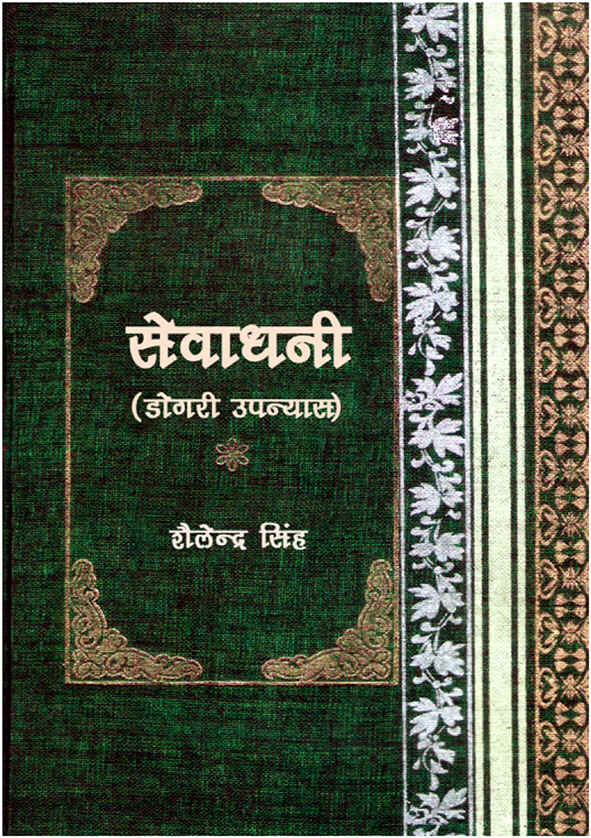O P Sharma
The 240-page book titled “Sewadhani, a Dogri novel” divided in ten chapters, has been dedicated to children of the world who generally fall prey to the menace of ‘child labour’ due to their extremely poverty-stricken parents. The story revolves around a child born in a very poor family of a remote hilly village of Ramnagar in J&K State who lands up working in a restaurant (Dhaba) in a town. This Dogri novel depicts the inhuman treatment meted out to this child who is also physically tortured by his employer. This village boy Raju is forced to work from dawn till late night and live in unhygienic conditions and deprived of any avenues of education.
Raju gets injured at his work place and comes under treatment of kind a doctor who also keeps the boy in his house and persuades him for study. Meanwhile, Dhani Ram, a social activist also plays a crucial role in shaping the future of the child by assisting in his education. An Act banning child labour was enacted in J&K State as well prohibiting employment of children below the age of 14 years. Incidentally Raju completes graduation and also does LLB and subsequently as a lawyer takes up cases connected with the child labour. The Act is flouted by the rich and influential persons.
Serious Problem
Under the influence of social workers and his commitment to cause of child labour, Raju resings his high post and vigorously engages himself in the movement for the cause of working children. The novel has the theme of this great menace and also pleades for proper education coupled with anti-poverty programmes to enable such unfortunate children to lead a life of a good citizen.
Shailender’s style is so absorbing that the reader is carried by the narration to the actual scene. The core issues involved in the Dogri novel is to eliminate the menace of child labour, which is a world-wide phenomenon.
The author in this well-crafted literary venture joins the issues of the serious problems and tries to expose grey areas of society. The role of politicians, administrators and others in not taking the movement of eradicating child labour (domestic servants commonly known as Mundu) wholeheartedly have also been articulately incorporated in the book that stuns the readers and makes them stay glued to it.
Way Out
The novelist believes that the child labour can be wiped out with sincere efforts and a will to work for welfare of our children through a special thrust by the entire society and the Government.
Shailender Singh’s first Dogri novel “Hashiye Par”, has received good reviews in the Press and appreciation in the literary circles.
This hard cover book has quality paper, fine printing and good production with absorbing reading material. The language used by the writer is simple, direct while the characters in the novel appear to be real life beings appropriate to the setting in this Dogri novel. The narration by Mr Shailender is so interesting and appealing that once the reader starts going through this novel, he or she wants to get to the end. It seems that the writer has worked hard to weave the story of this Dogri book, which has an authentic claim to high literary merit. It is really amazing that he has completed this book, despite being a senior Police officer with pressing calls of duty.
Well-knit Story
Using his investigating skill and as keen observer, the novelist Shailender Singh has not only diagnosed the core problem of poverty and child labour but given a number of useful remedies and suggestions as well. His language is simple and direct without being much ornamental. This is the merit of the book that it has communicated the message effectively.
The 240-page book was released on December 23, 2012 by Masud Chaudhary, former Vice-Chancellor of BGSBU and former ADGP and Dilbagh Singh, Inspector-General of Police as also Krishan Lal, school time teacher of Shailender Singh, at an impressive function held at Jammu University Campus. A number of literary luminaries, intellectuals, prominent persons, civil and Police officials were also present in this well attended function.
Strong Action Needed
Mr Shailender has chosen a very sensitive issue of child labour with its complex problems, mostly prevailing in some hilly and backward places in Jammu and Kashmir’s Ramnagar, Kishtwar, Rajouri, Bani-Basohli and other areas. The author has hinted to few of the keys to tackle this serious problems like provision of educational facilities, nutritional aid, scholarships or financial assistance to poverty-stricken parents so that the children, who are the future of the nation can have proper education and avenues of job opportunities so that they lead a purposeful life and also play their role as useful citizens. Every Dogri knowing person, man, woman and student must go through this interesting novel.
(Starline Syndicate Service)
Trending Now
E-Paper


